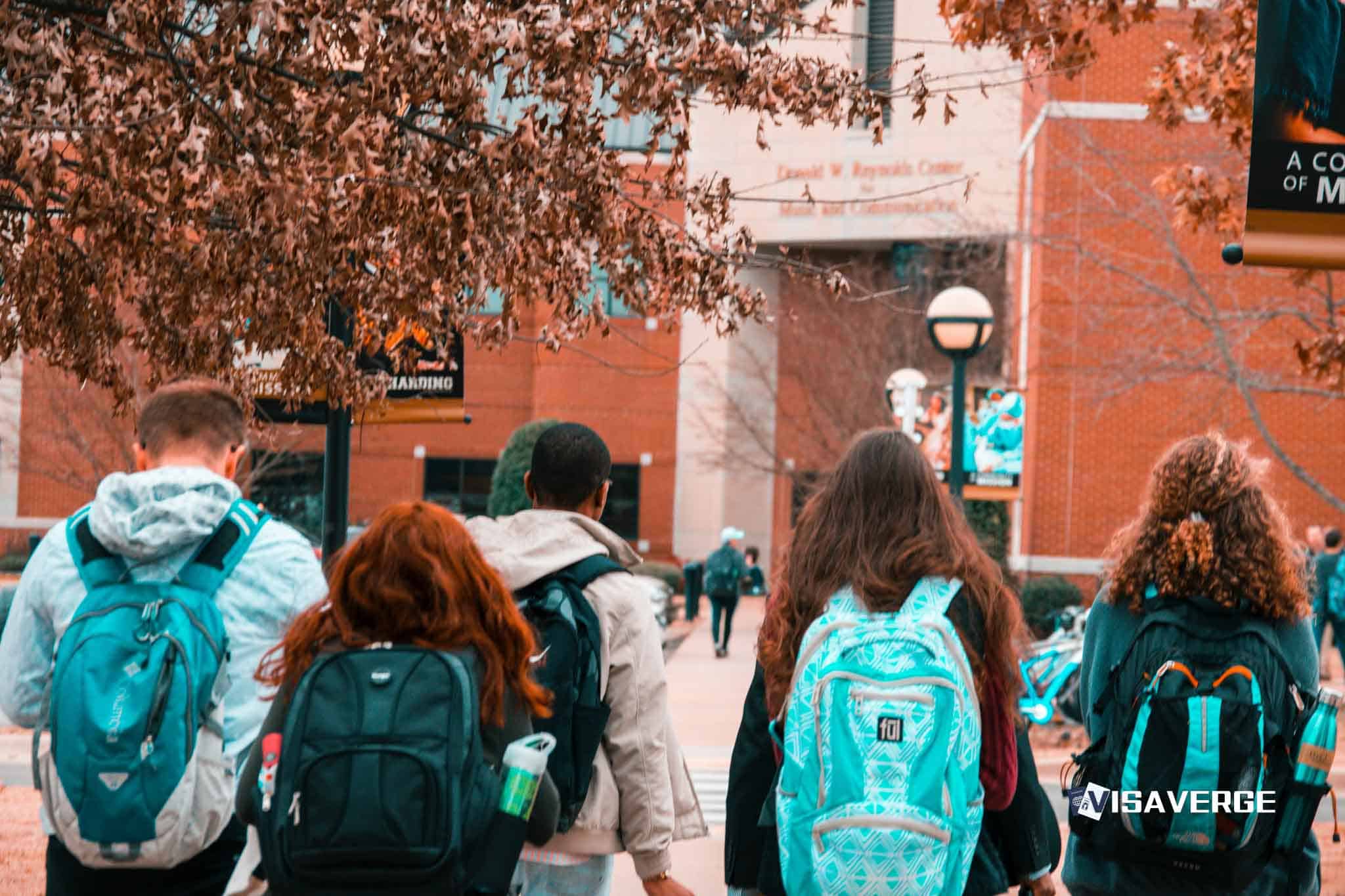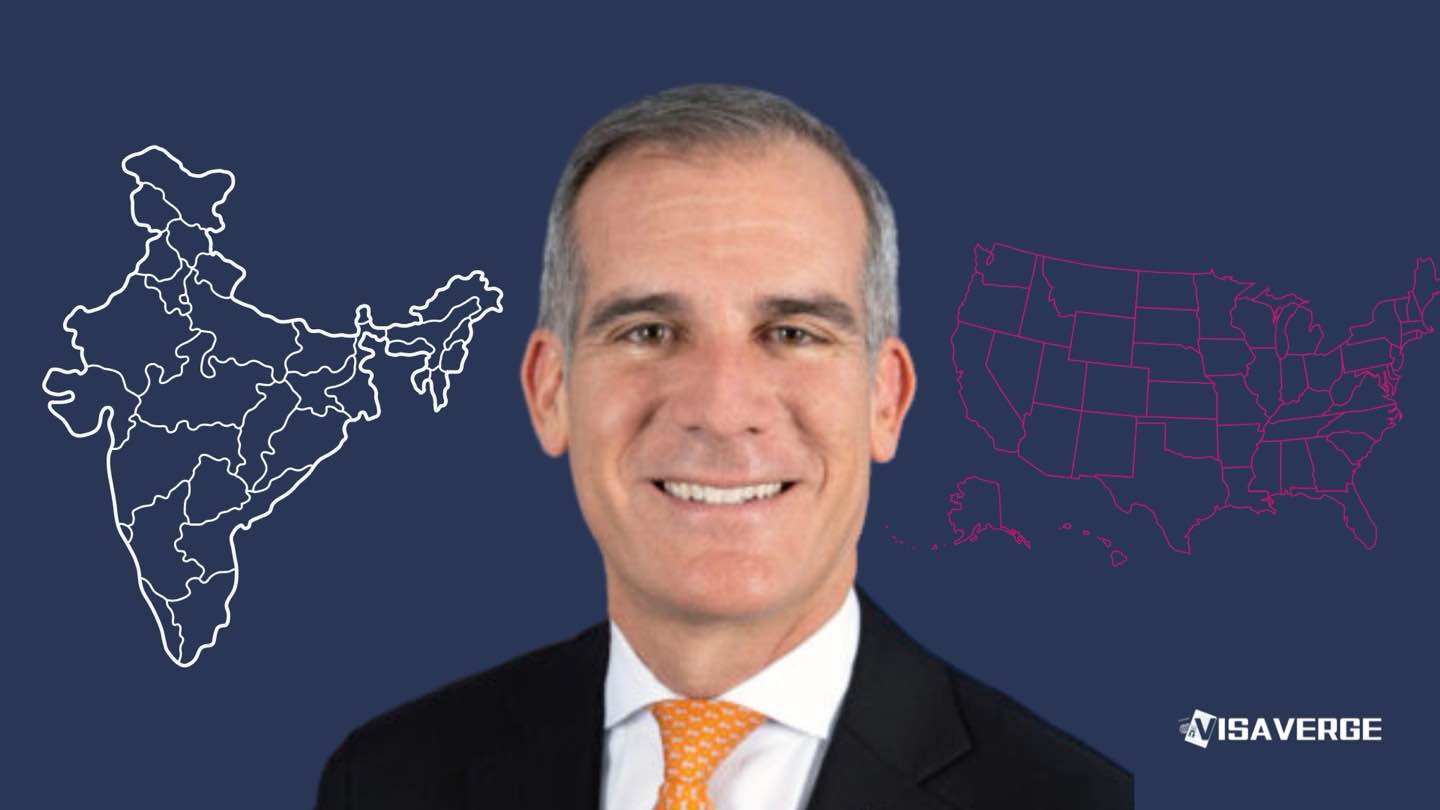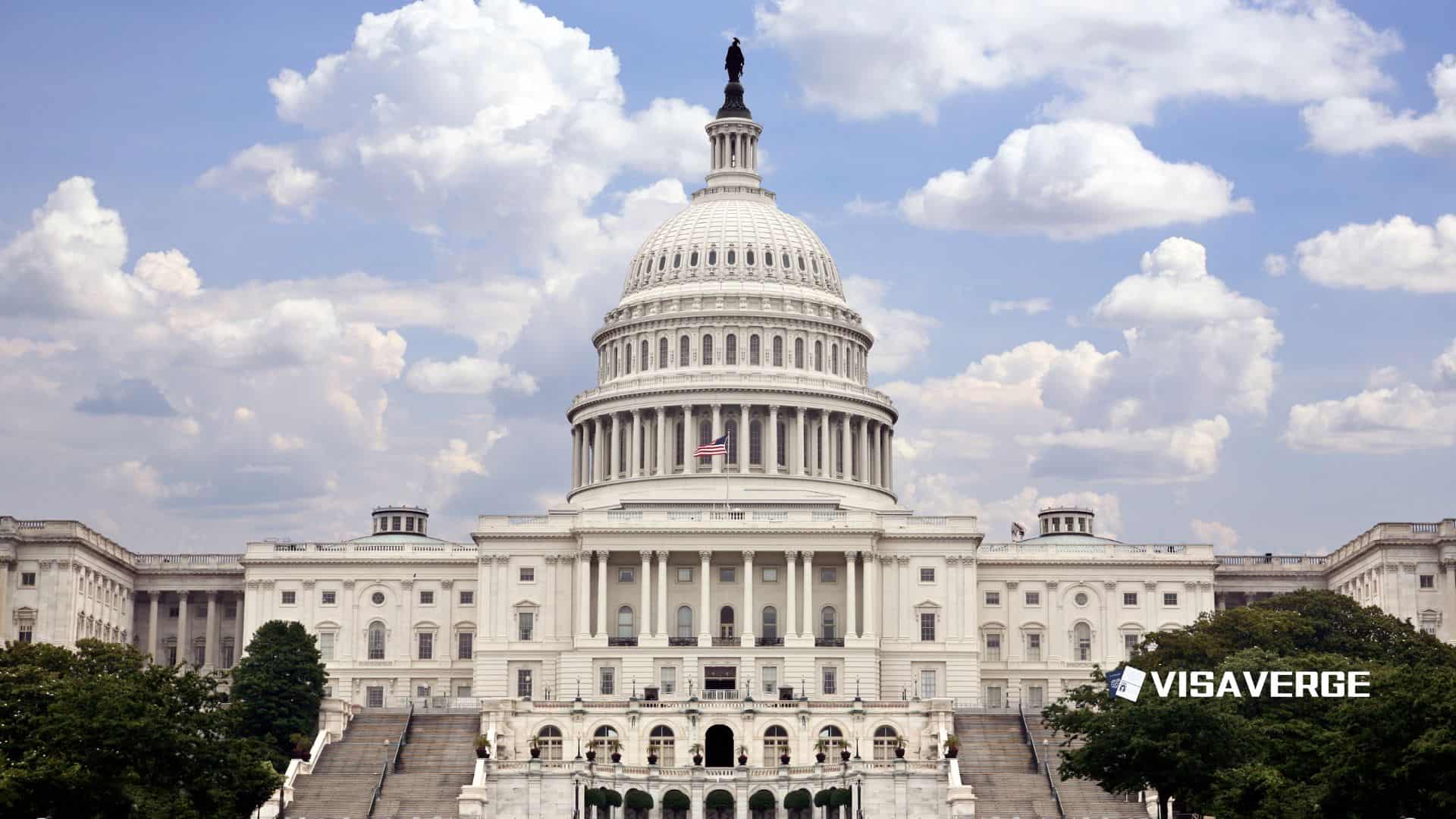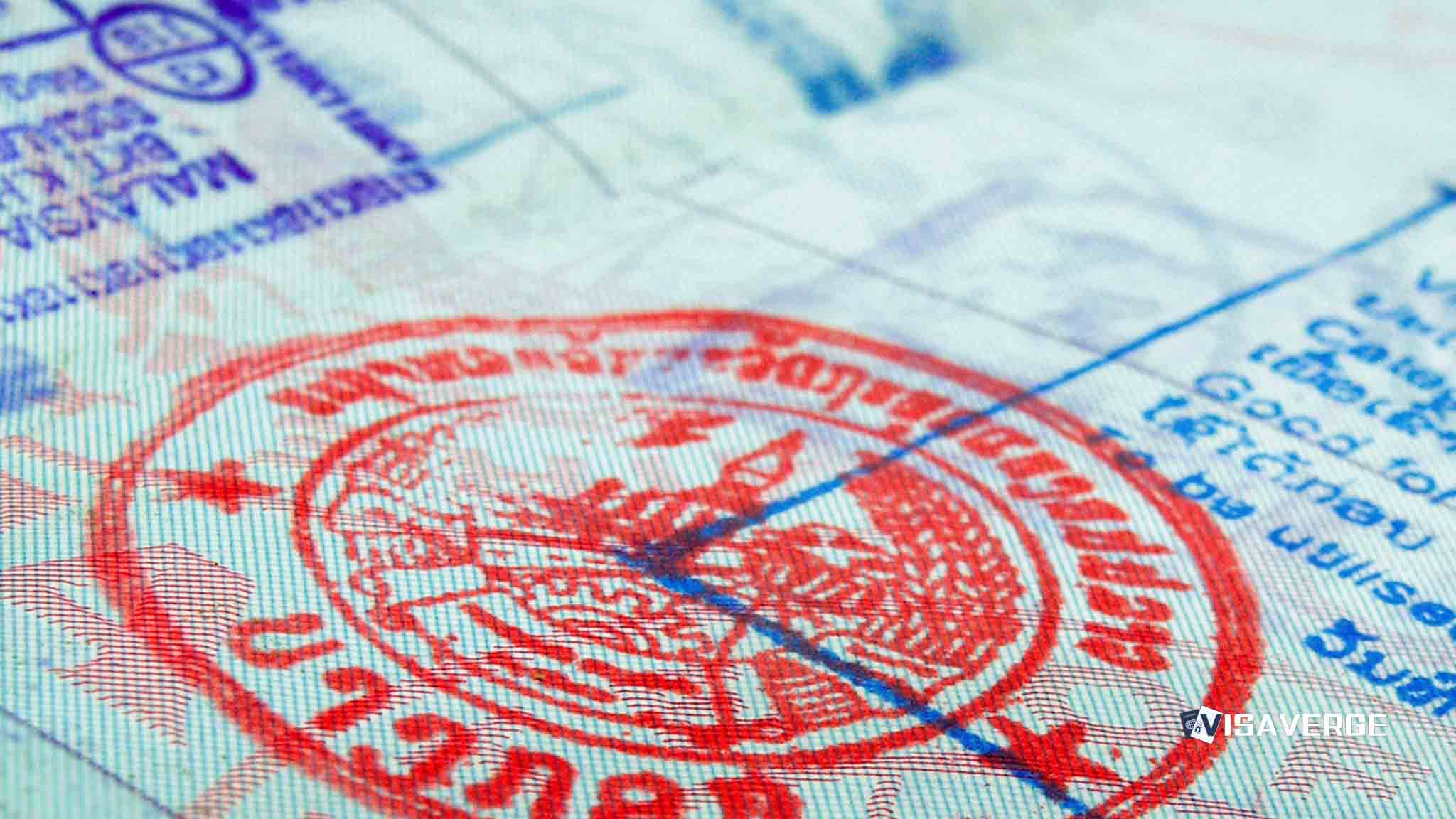Key Takeaways
• Columbia University risks losing $903.1 million annually if international students face visa challenges or leave.
• Trump’s administration froze $400 million in research grants, causing 180 staff layoffs and program cuts at Columbia.
• International students make up 40% of Columbia’s population, exposing the university to policy changes and enforcement.
Columbia University’s financial future faces major risks because of President Trump’s current stance on immigration, especially toward international students. The university has built much of its budget around revenue from these students, making it one of the most exposed schools in the United States 🇺🇸 to changes in visa policy and enforcement. The problem is not just about money, but also concerns about campus safety, diversity, and the future of research and learning at one of the country’s top universities. As reported by VisaVerge.com, these issues highlight how closely immigration policies and university finances are tied, as well as the serious impact political decisions can have on students and staff.
International students have always played a big role at Columbia University. Right now, about 40% of its entire student body comes from outside the United States 🇺🇸. Many of these students pay the full price for tuition and fees, which goes above $70,000 each year per student. When all the international student payments are added together, they contribute about $903.1 million every year to the university’s income. This huge sum is more than double what Columbia receives from the U.S. government for research. The people making up this group come from different countries, adding to the school’s reputation, but also forming the backbone of its financial health. So, when new visa rules or government actions affect the ability of these students to stay or attend, Columbia feels the hit quickly and deeply.

The risks have become real since President Trump’s latest immigration actions. Under his administration, some current and former international students, especially those involved in protests on campus — such as pro-Palestinian demonstrations — have been detained. Their visa statuses are now under review by immigration authorities. Several students have lost their visas, even though some say they were not directly involved in any protest activity. This has forced a number of graduate students to look for other options, like moving to Canada 🇨🇦, after finding themselves unable to remain in the United States 🇺🇸 legally. The effect is a sense of fear and confusion across the school’s international student body, who now worry daily about their right to study and live in the country.
Jordan Matsudaira, who was the deputy education undersecretary in the Biden administration, pointed out the seriousness of the situation, saying, “A large segment of their student body is paying significantly higher fees compared to domestic students. I’m sure this is a serious concern for them.” His words reflect a worry shared not only by university leaders but also by students who feel caught in a battle that is not of their making.
However, it’s not just students who are affected. Columbia has also found itself in a tough spot with federal research money. Recently, the Trump administration held back around $400 million of research grants as a way to pressure the university into changing its protest policies. This freeze on funding led to immediate layoffs — nearly 180 staff lost their jobs on programs that relied on this federal support. Some research and community programs had to be cut or downsized. These federal demands went beyond student matters, reaching into the very way the university governs itself and manages campus activity. Columbia was told to make changes to campus rules about protests and governance in order to have the withheld funding restored. This kind of direct federal intervention shows just how much influence Washington has over the day-to-day running of some American universities, especially elite ones like Columbia.
Peer universities like NYU and Northeastern also have many international students, but Columbia’s situation stands out for several reasons. Columbia has a higher percentage of international students compared to many of its peers. Last year, NYU enrolled around 27,000 international students and made roughly $1.4 billion in revenue from them. Northeastern University, in fact, had a slightly higher international headcount than Columbia but did not face the same level of federal scrutiny or intervention. Large public universities in the United States 🇺🇸 also depend heavily on tuition dollars from outside their home states or countries, but for schools like Columbia, which do not always offer large aid packages to foreign students, the reliance is felt more keenly.
This unique vulnerability comes from a mix of government attention — both for political and symbolic reasons — and a financial structure that counts on the continuous flow of high-paying international enrollees. When visa rules change or when fear spreads in this community, the effects ripple through nearly every part of the university, from classroom seats to budgets for research and student life.
Columbia’s response shows just how complicated and sensitive the situation has become. Acting President Claire Shipman has spoken openly about the tough times facing international students. The school has set up hardship funds to help those affected, but Shipman has stressed that fear and anxiety run deep across the campus. She has warned that losing the school’s diverse, international presence not only hurts students but also damages broader national interests, as it makes it harder for the United States 🇺🇸 to attract and keep the world’s top talent.
The sense of uncertainty is made worse by legal battles still playing out over both the detention and removal of students and the government’s ability to intervene in how Columbia runs itself. Some students and faculty worry that this climate could last for years, affecting not just the current classes but also future generations of international applicants. The message being sent to the world is unclear: on the one hand, Columbia and many other universities welcome international students; on the other, policy changes can quickly make their lives much harder.
Breaking down the main impacts, a simple summary looks like this:
- International student tuition has made up almost half of Columbia’s yearly income, but now faces serious risks if students cannot get or keep their visas.
- Federal research money, amounting to $400 million, was suspended, which led to staff layoffs and program cuts.
- Strong enforcement of immigration rules tied to activism poses a direct threat to student presence and revenue.
- Compared to other universities with many international students, Columbia’s profile has made it more likely to be a target for political action.
The university’s reputation as a welcoming place for people from around the world could suffer too. International students may start to see other countries — such as Canada 🇨🇦, the United Kingdom 🇬🇧, or Australia 🇦🇺 — as safer or more reliable choices when planning their education. Over time, this could lower not just tuition revenue, but also Columbia’s reputation as a global leader in research and academic excellence.
It’s important to remember that financial pressure doesn’t just affect the university’s leadership. Everyday students, both international and domestic, feel the changes up close. When hardship funds run low or support networks shrink, international students can find themselves isolated, unsure, and sometimes alone. Program cuts and layoffs change the tone of campus life for everyone, leading to larger class sizes, fewer course and research opportunities, and less support for those dealing with day-to-day stress.
There’s also a risk to the local community. Columbia is one of the biggest employers in New York City, and when federal grants disappear, it means lost jobs not only for researchers and faculty but also for support staff and local programs connected to the university. This strengthens the link between national policy decisions and local effects, which many people outside the academic world might easily miss.
Support for international students has now become a key subject of debate, not just inside university walls but also in the public and political arena. Some argue that strict enforcement of visa rules is necessary to maintain law and order on campus, especially during protests. Others see these actions as an overreach, targeting people based on national origin or political expression rather than any real risk to safety or security. The legal battles over revoked visas for students who say they were not part of any protest make these issues even more complex and sensitive.
With so much at stake, schools like Columbia are rethinking how to balance free speech, campus safety, and the need to protect their financial and academic future. The wider world is watching — students, scholars, and researchers make choices about where they’ll study or work based on what they see happening at universities like Columbia. If these schools start to feel unpredictable or unsafe, talented people may simply stop coming. This would be a loss not just for the university, but for the country.
University leaders have called on government officials to rethink the way student visas and campus funding are tied to politics. They argue that allowing politics to decide how schools are run will do long-term harm, making it harder for the United States 🇺🇸 to remain a leader in global education and innovation. Still, as the current situation unfolds, many decisions remain out of university hands.
For now, the exact path ahead is unclear. Court cases over both student visas and federal funding continue. Students already in the country are trying to finish their studies without running into legal trouble, while those hoping to come next year are watching closely to see if it’s safe to apply. The university administration says it will do all it can to support its students, but the next steps may depend on what happens in the nation’s capital, not just on campus.
For those interested in learning more about current visa requirements for international students in the United States, the U.S. Department of State’s official Student Visa page provides clear details about the application process and any changes in policy. This resource can help both students and families plan ahead and understand their options.
In summary, Columbia University’s huge reliance on international students and federal research grants has made it especially sensitive to immigration policy shifts under President Trump. The current approach — linking campus protest policies to funding and stepping up enforcement against some international students — has turned a major source of strength into a vulnerability. If this climate continues, it could mean fewer students, less diversity, reduced funding for research, and a lasting hit to the university’s global reputation. Everyone connected to the school — students, staff, and the broader community — has reason to watch closely and hope for clearer, more stable policies in the future.
Learn Today
International Student → A person from another country enrolled at a university on a temporary visa, often paying higher tuition rates than domestic students.
Visa Status → The official standing or permission for a non-citizen to legally study, live, or work in a country.
Federal Research Grants → Government-provided funds awarded to universities for conducting scientific and academic research, supporting staff, and programs.
Hardship Fund → Financial assistance provided by the university to students facing unexpected economic difficulties, often due to emergencies or policy changes.
Detention → The act of immigration authorities holding a person, often for alleged visa violations or participation in prohibited activities.
This Article in a Nutshell
Columbia University’s heavy reliance on international students and federal research funding makes it vulnerable to restrictive immigration policies and financial pressures. Recent Trump administration actions, including visa reviews and research funding freezes, risk reducing student diversity, damaging finances, and harming reputation. The coming months may further alter Columbia’s trajectory and influence higher education.
— By VisaVerge.com
Read more:
• Operation Take Back America charges 310 in Arizona immigration cases
• Immigration, Refugees and Citizenship Canada reports slower processing times
• Arizona advocates look to Pope Francis for change on immigration issues
• ACLU Louisiana Slams Landry’s ‘Operation Geaux’ Immigration Push
• U.S. Department of Transportation sued over immigration policy tied to funding













